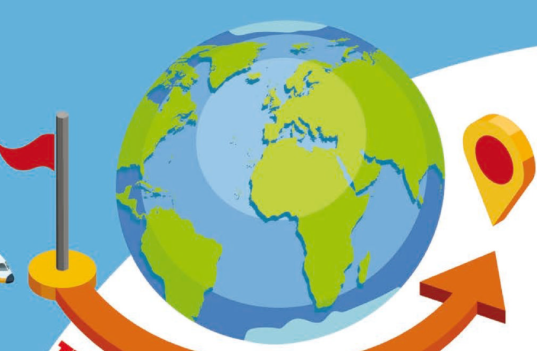(单词翻译:单击)
Look at your things. Where are they from?
看看你的物品。那些物品是从何而来?
They are probably from all over the world.
它们大概来自世界各地。
Long ago, people made all their own things.
许久以前,人们所拥有的物品都是自己做的。
But it can be hard to make everything for yourself.
不过现在,所有物品都要自己制作可能会很困难。
Different people have different skills.
不同的人有不同的技术。
So people started to specialize in different kinds of jobs.
所以人们开始专精于不同种类的工作。
When people specialize, production gets better and faster.
人一旦专业化,生产就会变得质量更好,速度也更快。
Cities and countries can specialize, too.
城市与国家也可以专业化。
Some have a lot of resources, while others have a lot of people.
有些城市与国家拥有许多资源,有些则是人口很多。
These differences are important. They make each place special.
这些差异非常重要,每个地方都因为这些差异而特别。
They also affect a country's products.
此外,这些差异也会影响一个国家生产的产品。
No country can make the best of everything.
没有一个国家能够在每一种物品上的制作上都达到最顶尖的程度。

So countries must trade with each other.
所以,国家必须互相贸易。
Each country can provide its best products to other countries.
每个国家都能够向别的国家提供自己最好的产品。
Trade isn't always easy, though.
然而,贸易不一定容易。
In the past, moving goods took a lot of time. It was often dangerous, too.
过去,运送货物需要花费许多时间,而且通常来说也相当危险。
Now modern transportation makes moving things much easier.
现在,现代运输使得运送物品变得容易许多。
But even today, trade can still be difficult.
可是即便在今天,贸易也还是有可能很困难。
Countries often argue about trade. Moving things can be expensive.
国家之间经常因为贸易起争执。运送物品的成本可能很高昂。
And countries often charge taxes on things from other places.
而且国家也经常会对来自其他地方的物品收税。
But trade also improves people's lives.
不过,贸易也会改善人的生活。
People can enjoy things from other places.
因为这样人们就可以享受来自其他地方的物品。


